Zulat’s conference “Main Barriers in Arab Women’s Employment in Israel” held on 16 July at Bet Heseg in Tel Aviv focused on a report by the same name, authored by Attorney Shirin Batshon and a steering team comprising Prof. Nihaya Daoud and Dr. Rajda Alnabulsi, which was published by Zulat in May 2023.
Presenting the main findings to the audience, Attorney Batshon mapped the barriers due to which only 40% of Arab women in Israel are employed.
“We chose the two barriers on which there is unanimity: poor public transportation and lack of day care centers for toddlers. The Bank of Israel’s annual report for 2008 claimed that the problem of Arab women’s employment was a cultural one. However, the real problem is the lack of opportunities. The cultural argument was defused when it was demonstrated that the participation rate of Arab women in Israel was lower than in Arab countries. This was a manipulative use of data by the state to justify the phenomenon,” Attorney Batshon said. Alongside the findings of the report, she presented Zulat’s legislative proposals urging government ministries to consider in their decisions the question of public transportation and day care centers available to Arab women.
The five-year programs introduced by the government to reduce disparities are not enough, she affirmed: “These programs confine Arab women to female occupations that traditionally earn low wages, such as cleaning, secretarial work, and nursing. Even Arab women who open businesses at home barely make an income that exceeds Social Security benefits. The report concludes that five-year plans are not the solution and that the goal should be to achieve substantial equality, which must be done through legislation.”
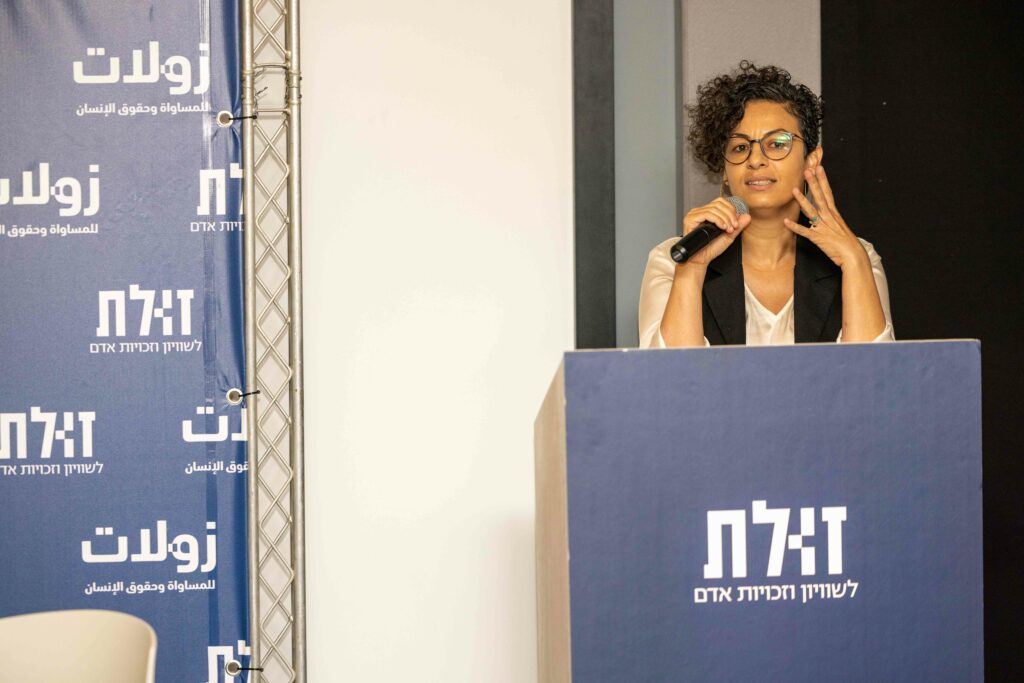
The ensuing debate was opened by former and current MKs. Welcoming the participants, Zulat President Zehava Galon said: “I was asked why we concern ourselves with the employment of Arab women at at time when a regime revolution is raging outside, and the answer is that everything is connected and that life goes on. This government is out to weaken the Supreme Court, which has been the last resort for women’s rights, and to cancel the advancement of the status of women. Its conduct vis-a-vis women and Arab society is appalling, and we will continue to fight against it.”
MK Pnina Tamano-Shata, chairperson of the Knesset Committee on the Status of Women, said she was familiar with the report, which had been presented to her committee, and planned to appoint a subcommittee to look into the issue: “Some 30% of the applications for income support are filed by Arab women, yet this figure fails to impel decision-makers to realize that the state will also benefit from a reduction of disparities.”
The last to salute the audience was MK Aida Touma-Suleiman: “The state screams that there is a shortage of teachers, yet there are 12,000 Arab teachers with teaching certificates and bachelor’s degrees who cannot find work in their profession. It’s not that Arab women are lazy, but that their underemployment has been built into the state’s policy. The barriers are at the national level.”
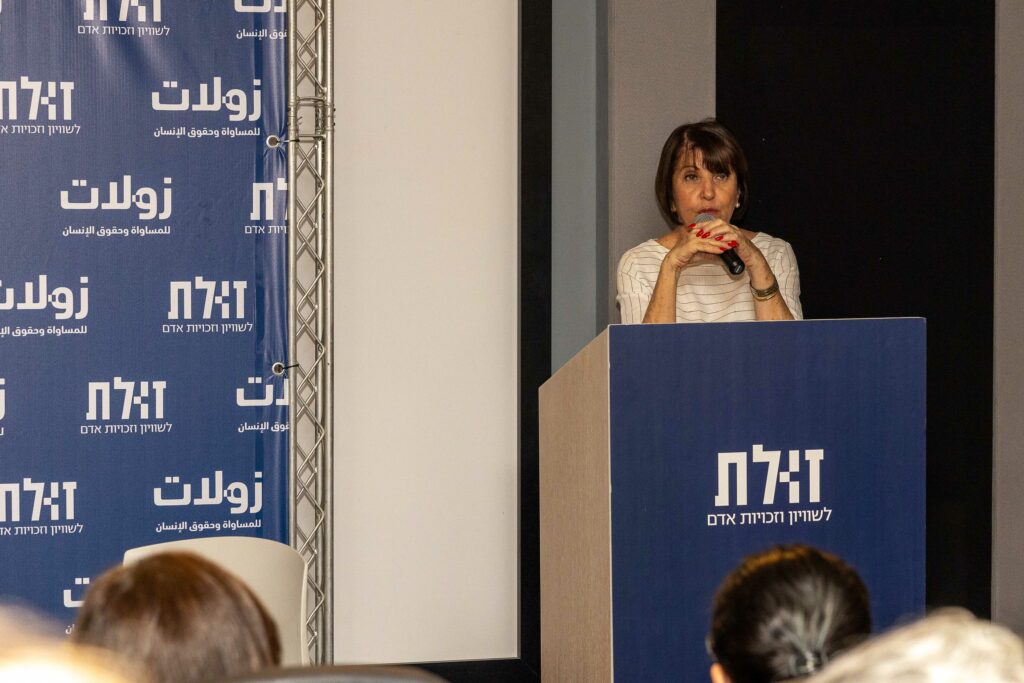
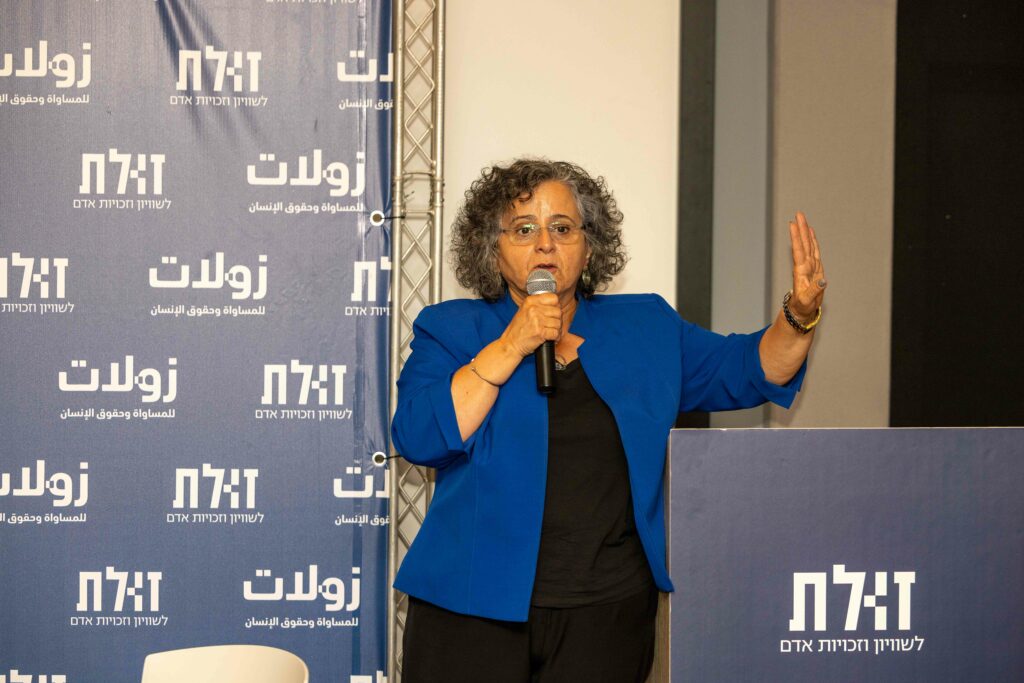
Huda Abu-Obeid, a jurist and lobby coordinator at the Negev Coexistence Forum for Civil Equality, provided an overview of the barriers faced by Bedouin women: “The main gap has to do with ducation. Educated Bedouin women are more employed than uneducated ones. There are no high schools in Bedouin localities unrecognized by the state. Girls’ families are not always willing to let them travel elsewhere, while the buses provided by the Education Ministry are unsafe. If a girl finishes junior high and wants to continue to the 10th grade, she must leave the house at 05:30 in the morning to get to school by 08:00. The average salary of Bedouin women in the Negev is 4,400 shekels. If a mother wants to join the job market, she needs to have a car because there is no public transportation, and that costs money. She also needs to place her children in day care centers, but only 19 such places exist in all of the Bedouin localities.”
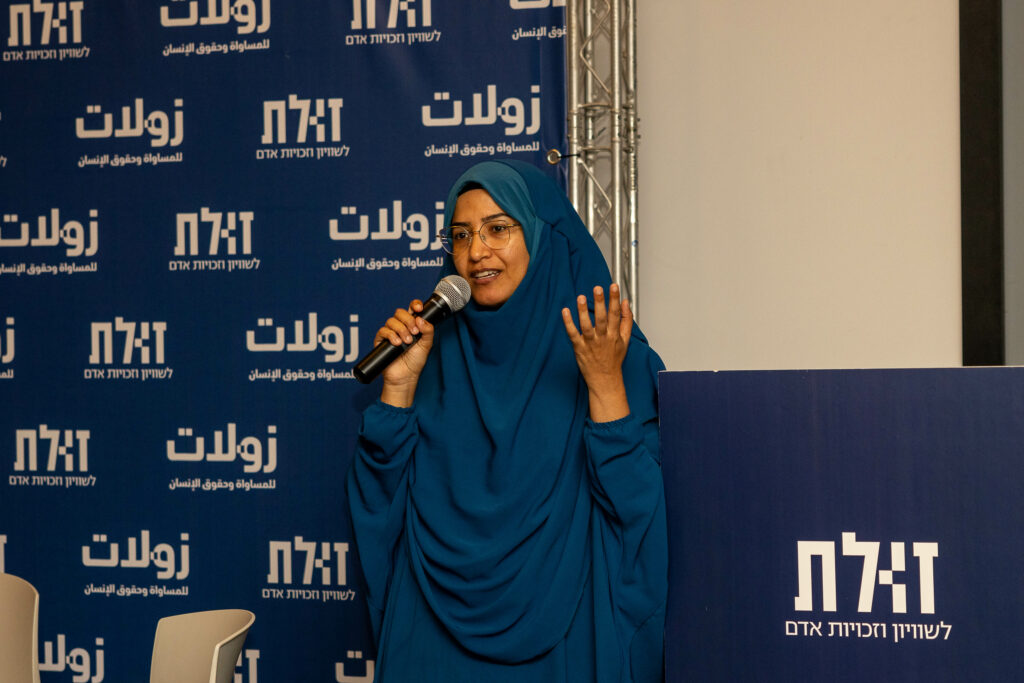
The conference ended with a discussion by a panel of experts moderated by Hanin Majadli, an Haaretz journalist and Arabic editor. Dr. Rajda Alnabulsi, a lecturer and researcher at Ruppin Academic Center’s Department of Social Work and director of Arab society affairs: “It is impossible to address the question of women’s employment without referring to the historical processes undergone by Arab society as a native national minority and to what happened to Arab women after the establishment of the Israeli state.”
Dr. Maha Karkabi-Sabbah, a senior lecturer at Ben-Gurion University’s Department of Sociology and Anthropology: “There are two economies in Israel, an Arab economy and a Jewish economy. As a result of long-term historical and political processes, two completely different economic infrastructures were created that do not allow the same structure of opportunities.”
Prof. Amalia Sa’ar, head of Haifa University’s Department of Anthropology: “Jewish society is going through a time of major upheaval. We are fighting for democracy, and there are disagreements within the progressive camp about the kind of democracy we are fighting for. Many critical discussions about the importance of alliances between Jews and Arabs await us at the end of this process, including the need to raise consciousness about the absence of Arab women from the workforce, not only for such cynical reasons as increasing the GDP but because of the crucial meaning of cooperation in a healthy society.”
(Translation from Hebrew: Shoshana Michkin)
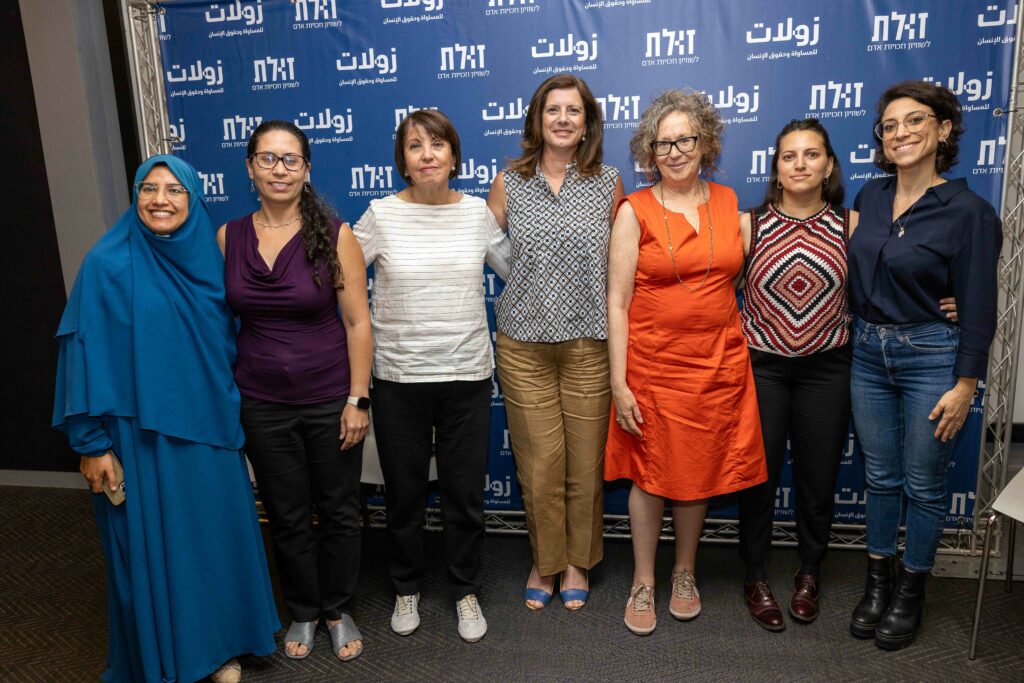
Watch the full confrence (Hebrew, no Subtitles):
Read More:
>> Discussion in Knesset: Barriers in the employment of Arab Women





